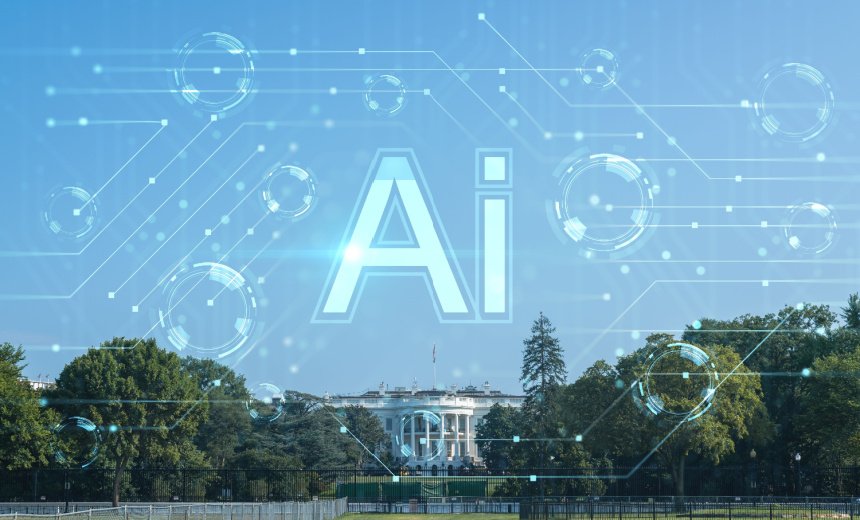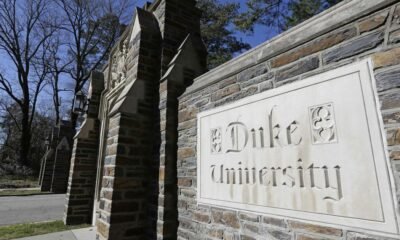Education
Pitt County Schools addresses AI use in the classroom ahead of school year

PITT COUNTY, N.C. (WITN) – Back-to-school season is approaching, and teachers here in the East are making sure they’re ready to get started in mid-August.
As artificial intelligence remains prominent in many people’s everyday lives, educators are now looking at the pros and cons of integrating AI into the classroom.
From automatic grading to helping students learn at their own pace, some schools are welcoming AI with open arms, but others say the technology raises red flags.
Advocates say AI can save time for teachers, offer personalized feedback for students, and even bridge language barriers, according to the University of Illinois College of Education.
Some have their concerns, including challenges to privacy and plagiarism.
Pitt County Schools District Digital Learning Specialist Beth Madigan says they’re looking forward to using AI in a responsible way.
“Looking for credible sources and making sure that the student and teacher are still the content experts,” says Madigan. “The machine is not the expert. The student is the expert. The teacher is the expert.”
She says they’ll do this by training teachers to teach students how to use AI as a thought-partner, not a replacement.
“There are AI experts in the school building, so when teachers have questions or things that may be questionable for students, they can go to their AI champion and get some aid, some coaching, some help in that realm,” says Madigan. PCs
Madigan says PCS is emphasizing the process of AI over the product of AI.
For example, teachers will consider how students can leverage AI to elaborate on their original ideas safely and responsibly.
Madigan says the schools’ Kindergarten through 5th-grade students will use AI in the classroom with guidance from their teachers.
6th-grade through 8th-grade students will be diving into learn what it means to talk with an AI machine.
High school students in the district will learn how to properly cite sources when it comes to using AI.
The University of Illinois College of Education says critics argue that students may rely on AI to do the work for them, and there are concerns over data security, ethical use and the lack of clear guidelines.
While some schools, like Pitt County Schools, have already started creating policies for AI use, others are still figuring out their guidelines.
Copyright 2025 WITN. All rights reserved.
Education
RFK Jr. testifies on Capitol Hill, AI in education, generational change in Congress – Spectrum News
Education
STC Computer Information Technology program Leads the Way for AI Education

Texas Birder Business
By Joey Gomez
McALLEN, Texas – Artificial Intelligence (AI) is at the core of South Texas College’s Bachelor of Applied Technology in Computer Information Technology (BAT-CIT) program as it pioneers industry certificates on a statewide and national scale for students.
Leadership and faculty with the program say they have now awarded more than 2,250 certificates to students taking BAT-CIT courses in the five years since integrating what the program calls AI-focused “microcredentials” tied to Google and Amazon Web Services (AWS) in fall 2020.
The priority on industry credentials is giving graduates a unique and competitive edge in the job market, according to program Department Chair Saeed Molki.
“In the entire state of Texas and throughout the entire United States, no one has done such a thing,” Molki said, referring to the number of credentials awarded to students. “We do not overstate all the work we have done for students in the last five years.”
Crediting college leadership including STC President Ricardo J. Solis, Ph.D., along with Vice President and Provost for Academic Affairs and Economic Development, Anahid Petrosian, Ph.D., and Dean of Math, Science, IT and Bachelor Programs Ali Esmaeili, Ed.D., for encouraging the push toward microcredentials and AI, Molki said the effort began with a vision to embed industry certifications directly into courses.
The effort culminated this year in 2025 as the program added four new AI-related courses, which includes an Advanced Artificial Intelligence course for fourth-year students and an upcoming Data Science and Machine Learning in Cybersecurity course which begins in spring 2026.
Each course is meant to build on the last to create a progressive pathway to advanced AI concepts, according to BAT-CIT faculty.
“So essentially, students are going to be getting a certificate with every class,” said Assistant Professor of Computer Science, Nicholas Hinojosa. “Last semester, we even implemented that every student who is taking our 1301 class, which is our most basic class, will complete a certificate in Google Artificial Intelligence Essentials. These are students who are coming fresh from high school to STC.”
The BAT-CIT program offers seven industry-recognized certifications, that align with coursework so students earn credentials as they progress through the program.
CIT Assistant Professor Menghung Wu, Ph.D., emphasized that the curriculum builds from Python to machine learning and then to advanced AI which ensures students understand both the technical skills and theory behind AI systems.
“AI is no longer just a tool, it’s the foundation of how technology is advancing,” Wu said. “This is why in our program, we don’t just introduce students to the basics, we guide them step-by-step into the core of artificial intelligence. That deeper knowledge is what will set them apart as innovators in the workplace.”
BAT-CIT student Andrea Rios is the founder and current president of the program’s Computer Science Club and organizes various activities and speakers for students. Reflecting on the priority the program places on AI-related credentials, Rios said faculty are doing a phenomenal job by embracing the new technology and gauging the industry.
“The biggest way the faculty in the BAT-CIT program help students is by understanding the market and the workplace and realizing just how quickly it changes, especially in the technology industry,” Rios said. “At STC, we are taught to adapt and I think that’s the most important thing I have taken from my time here.”
For more information on STC’s Computer and Information Technologies program visit www.southtexascollege.edu/academics/computer-info-tech/index.html.
Education
Trump Continues Push for AI in Schools as FTC Probes Risks

White House Kick Off School Year With AI Education Efforts, Public-Private Collabs
The White House is rolling out its Presidential Artificial Intelligence Challenge with new commitments to further expand the use of AI in education just as the school year begins – and as the Federal Trade Commission readies a probe into whether popular AI chatbots are harming children’s mental health.
See Also: OnDemand | Transform API Security with Unmatched Discovery and Defense
U.S. President Donald Trump hosted several big tech leaders Thursday night “for discussions centered on harnessing [AI] to propel the U.S. to the forefront of global innovation,” according to a press release the White House published Friday. The meeting followed the second White House Task Force on AI Education summit, where First Lady Melania Trump announced a series of commitments to help further the administration’s AI challenge, including forthcoming toolkits, webinars, classroom guides and agency action items to increase the implementation of AI training materials and tools in K-12 schools nationwide.
Education Secretary Linda McMahon said during the meeting the agency is “fully aligned with the Presidential AI Challenge” and “encouraging students and educators to explore AI technologies with curiosity and with creativity.” Experts have also warned the federal push to rapidly deploy AI tools across American classrooms could come with cybersecurity vulnerabilities, privacy risks and potential harm to minors (see: Trump Wants AI in Classrooms. Where Are the Safeguards?).
Initiatives to further AI in education include billion-dollar commitments from companies like Alphabet and million-dollar agreements with IBM – both of which had their CEOs at the education summit. Labor Secretary Lori Chavez-DeRemer said that her agency is in the process of building new private sector partnerships to expand access to AI education and training materials nationwide. Google CEO Sundar Pichai said efforts are designed “in the service of helping the next generation to solve problems, fuel innovation and build an incredible future.”
Recent studies have shown AI tools and systems may have some positive benefits when introduced in the classroom but in their present form typically introduce major risks including the presence of inappropriate and harmful content. According to the Wall Street Journal, the FTC is preparing to send many of the top tech companies developing the leading AI tools that were present at the White House this week letters demanding information while investigating whether children’s mental health is impacted by the use of chatbots like OpenAI’s ChatGPT.
The White House Presidential AI Challenge invites U.S. students to complete a project that involves AI tools or systems to address community challenges, and encourages educators to use creative approaches to teaching and using AI technologies in K-12 education. Trump signed executive orders in April encouraging public-privte partnerships to expand AI in K-12 education, establishing the Presidential AI challenge and directing agencies to work with leading AI organizations in creating new resources specifically for K-12 education.
OpenAI has announced plans to create accounts for teens with parental controls amid lawsuits against AI companies over teenage suicides from families alleging their children were adversely affected by their tools.
-

 Business1 week ago
Business1 week agoThe Guardian view on Trump and the Fed: independence is no substitute for accountability | Editorial
-
Tools & Platforms4 weeks ago
Building Trust in Military AI Starts with Opening the Black Box – War on the Rocks
-

 Ethics & Policy1 month ago
Ethics & Policy1 month agoSDAIA Supports Saudi Arabia’s Leadership in Shaping Global AI Ethics, Policy, and Research – وكالة الأنباء السعودية
-

 Events & Conferences4 months ago
Events & Conferences4 months agoJourney to 1000 models: Scaling Instagram’s recommendation system
-

 Jobs & Careers2 months ago
Jobs & Careers2 months agoMumbai-based Perplexity Alternative Has 60k+ Users Without Funding
-

 Education2 months ago
Education2 months agoVEX Robotics launches AI-powered classroom robotics system
-

 Funding & Business2 months ago
Funding & Business2 months agoKayak and Expedia race to build AI travel agents that turn social posts into itineraries
-

 Podcasts & Talks2 months ago
Podcasts & Talks2 months agoHappy 4th of July! 🎆 Made with Veo 3 in Gemini
-

 Education2 months ago
Education2 months agoMacron says UK and France have duty to tackle illegal migration ‘with humanity, solidarity and firmness’ – UK politics live | Politics
-

 Podcasts & Talks2 months ago
Podcasts & Talks2 months agoOpenAI 🤝 @teamganassi

























